
Evidence-Based Treatments: Elements or Adaptations for Military Family-Informed Care
Explores elements and strategies to adapt evidence-based treatments for military children and families.
The following resources on Military and Veteran Families were developed by the NCTSN.

Explores elements and strategies to adapt evidence-based treatments for military children and families.
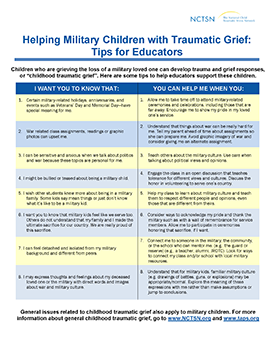
Offers information on military children who are grieving the loss of a loved one. This tip sheet describes how military children dealing with trauma and grief responses may be feeling and what educators and school staff can do to help.
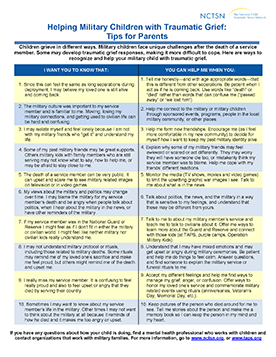
Offers information on military children who are grieving the loss of a loved one. This tip sheet describes how military children dealing with trauma and grief responses may be feeling and what parents can do to help.
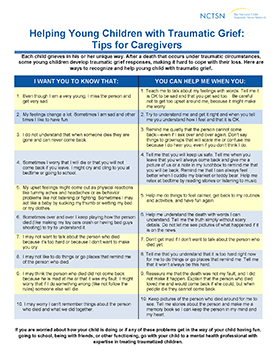
Outlines the feelings of young children struggling with the death of someone meaningful and offers suggestions on what caregivers can do to help.
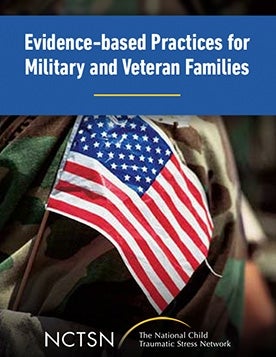
Shares examples of how organizations can incorporate military-informed procedures and practices, beginning with asking about service member status and affiliations.
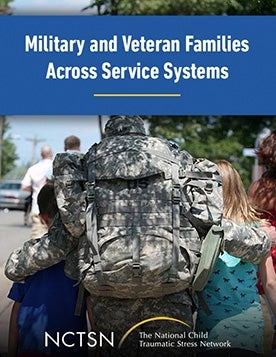
Describes 10 key concepts for providing competent and effective services to military families.
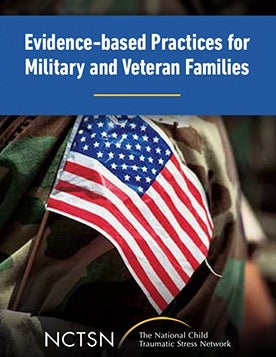
Familiarizes participants with several mental health programs and interventions designed for use with military and veteran families.
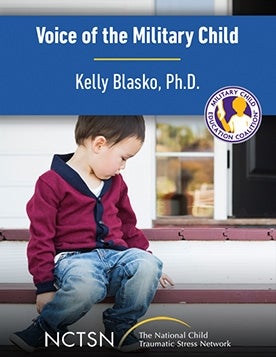
Describes the development of the Military Kids Connect website and use of technology to support military children.
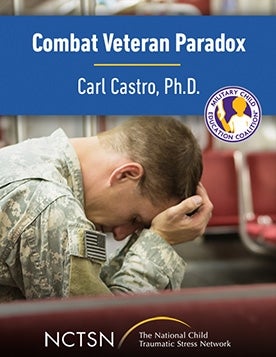
Describes the challenges associated with going to and returning from war for service members, including the many paradoxes that prevent getting help.

Provides an overview of the issues of child maltreatment and military sexual trauma in military settings.
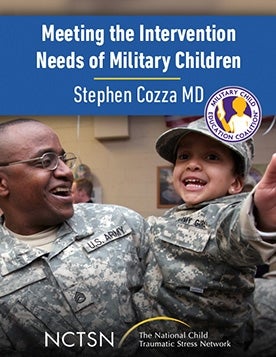
Provides a framework for interventions that serve the mental health needs of military children.
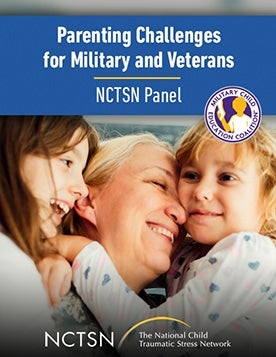
Interviews COL Rick Campise and Mary “Tib” Campise about the challenges to parenting among military members due to the stress of deployment and prolonged separation.